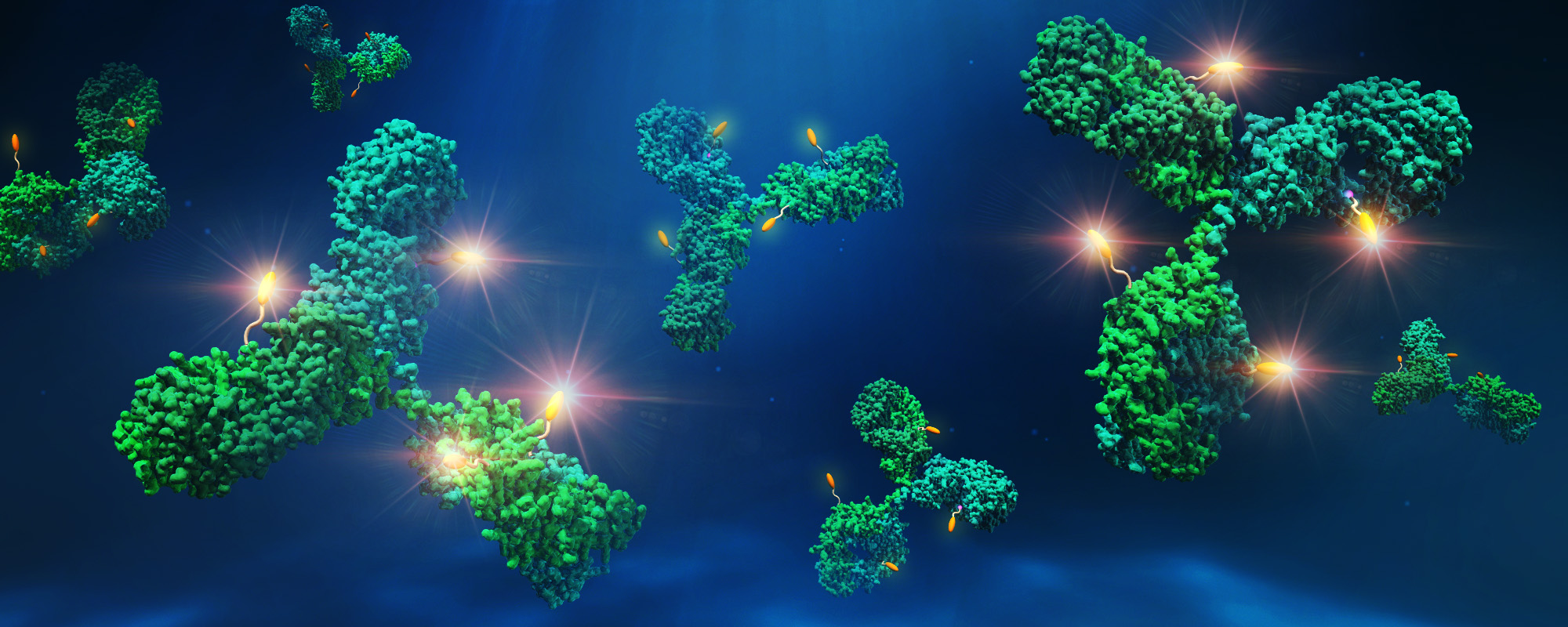

次世代ADC創出プラットフォーム
位置選択的結合技術/安定性付与リンカー技術
AJICAP® が提供するバリュー
治療可能域の拡大
- 位置選択的結合技術およびリンカー技術による高い薬効と安全性を有する抗体薬物複合体(ADC)の創出
簡便な位置選択的ADC合成技術
- 化学法を用いた天然型抗体への直接修飾
- 抗体の遺伝子改変・酵素反応を使用しない手法
- 簡便で高収率な製造プロセス
- DAR2あるいは高DARの精密コントロール
広範なADCに適用可能
- 広範なIgG抗体に適用可能な位置選択的結合技術
- 広範な薬剤に適用可能な安定かつ高親水性なリンカー技術
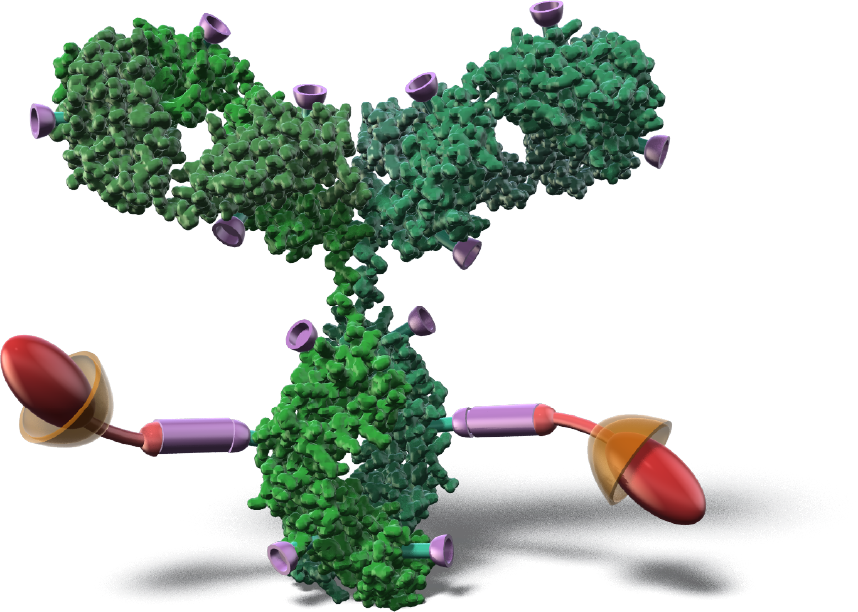
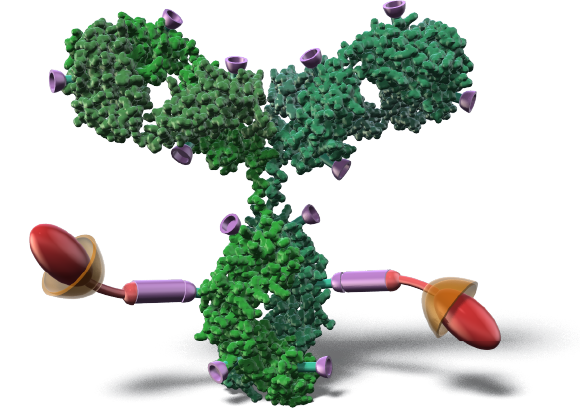
テクノロジー
AJICAP®位置選択的結合技術
AJICAP®位置選択的結合技術は、化学法を用いて天然型抗体に位置選択的に薬剤を導入する手法であり、次世代ADCの創出に貢献します。

AJICAP®位置選択的結合技術の反応工程
AJICAP®試薬を用いた抗体Fcの特定リジン残基への生体直行性官能基の導入(チオール基、アジド基等)※
生体直行性官能基への薬剤の結合
AJICAP®位置選択的結合技術が提供する価値
位置選択性付与による高い薬効と安全性を有する抗体薬物複合体(ADC)の創出
簡便な製造・精製プロセスによるCMCの容易性
抗体上の特定の位置に抗体薬物比(DAR)2~4で薬剤導入制御
広範な抗体(IgG1, IgG2 andIgG4)への適用可能
多様な薬剤(低分子~高分子)を使用可能
AJICAP®位置選択的結合技術の適用例
低分子薬剤との結合によるADC創出
放射性同位元素との結合による放射性医薬品などの創出
ペプチド・タンパク・オリゴ核酸などとFcタンパクの結合による長時間作用薬の創出
機能性物質の結合による多重特異性抗体の創出
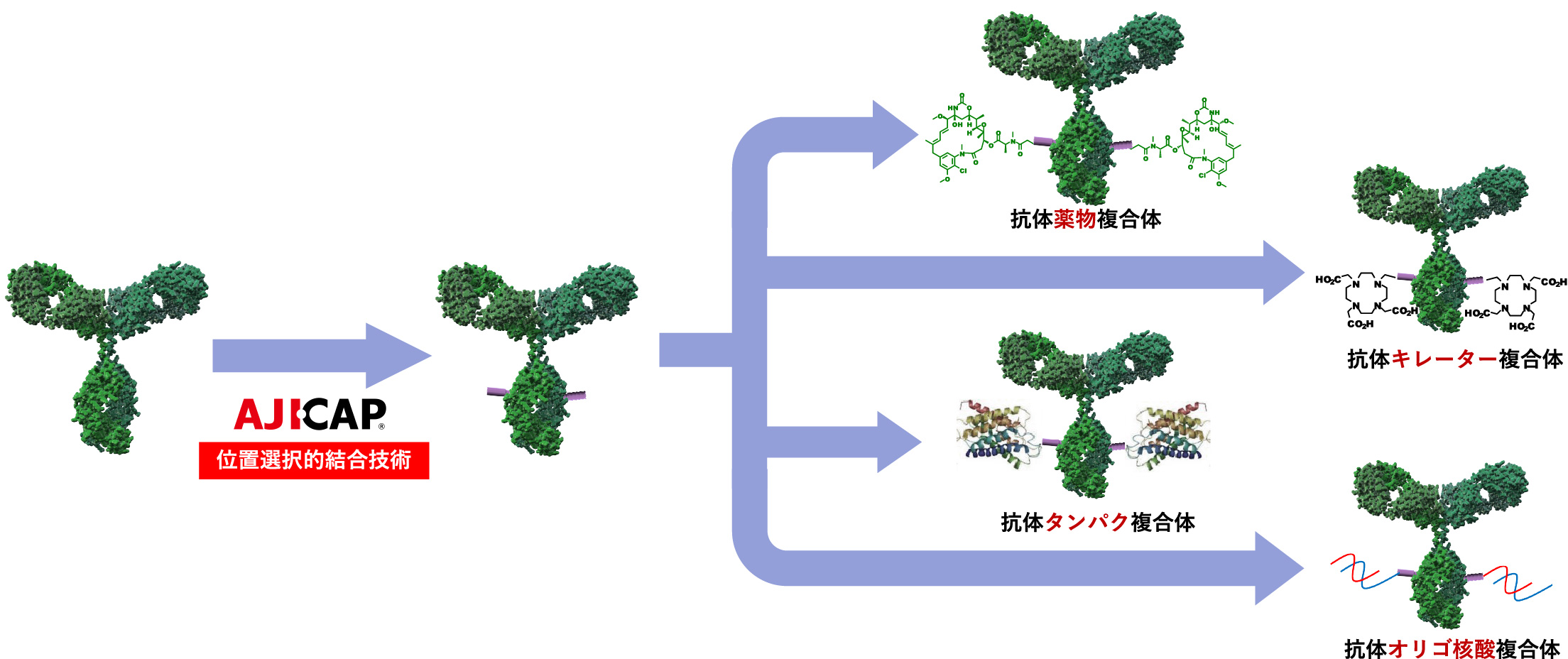
AJICAP®安定性・親水性付与リンカー技術
AJICAP®安定性・親水性付与リンカー技術は、広範な薬剤に適用可能であり、次世代ADCの創出に貢献します。
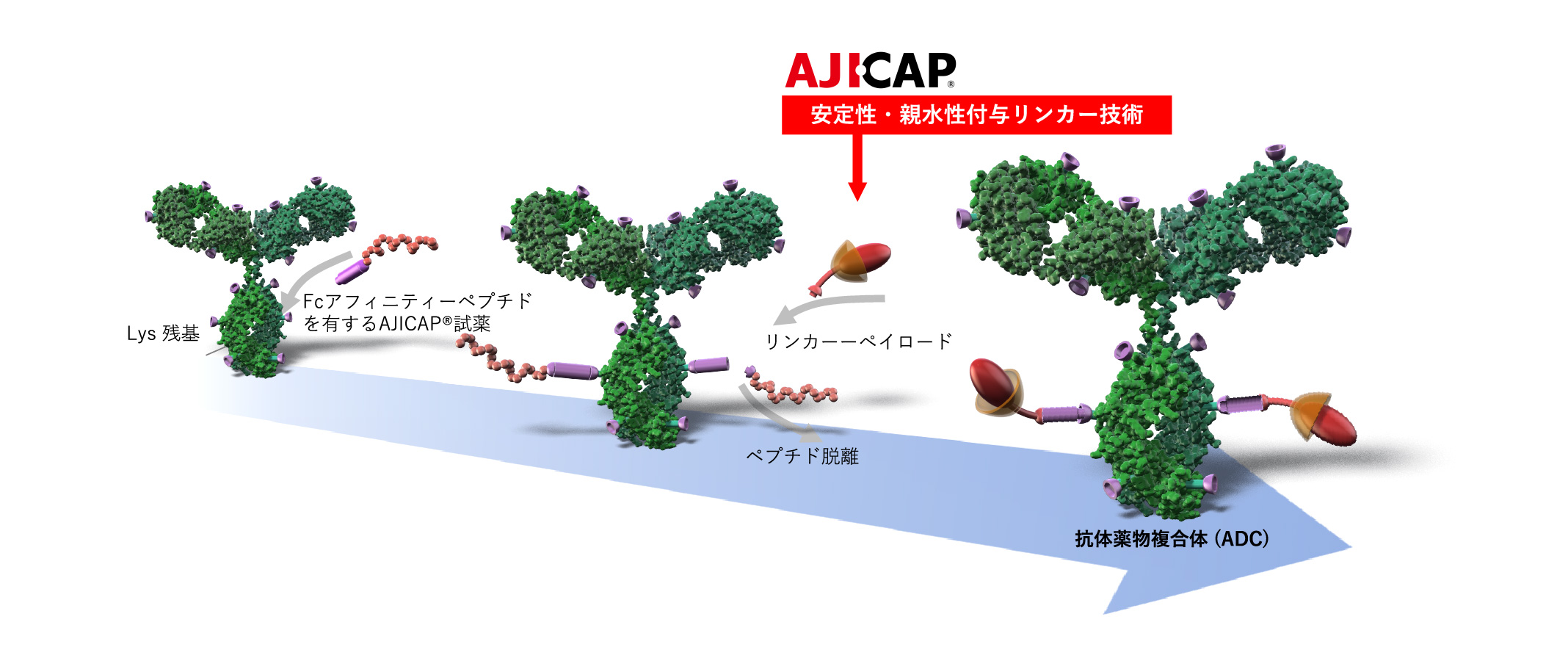
AJICAP®安定性・親水性付与リンカー技術の特長
高い血中安定性と標的細胞での選択的な薬剤放出
薬剤を親水性官能基で遮蔽
AJICAP®安定性・親水性付与リンカー技術が提供する価値
高い血中安定性と標的細胞での選択的薬剤放出による高い薬効と安全性を有するADCの創出が可能
薬剤を親水性官能基で遮蔽することにより、劇的にADCの凝集を抑制
AJICAP®位置選択的結合技術をはじめ広範な結合技術との組み合わせで使用可能
AJICAP®安定性・親水性付与リンカー技術の適用例
多様な結合技術と組み合わせて使用することが可能です。
AJICAP®位置選択的結合技術
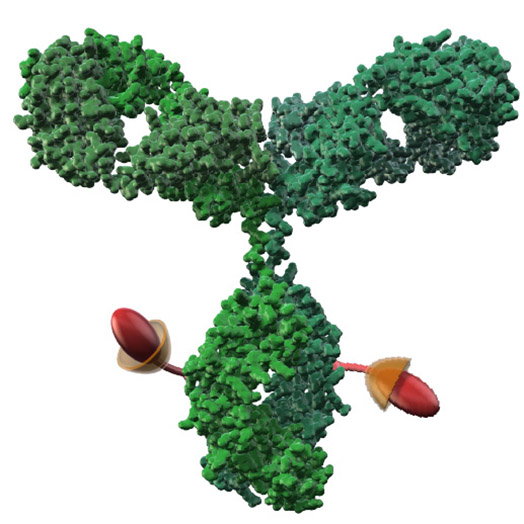
システインコンジュゲーション DAR4-DAR8
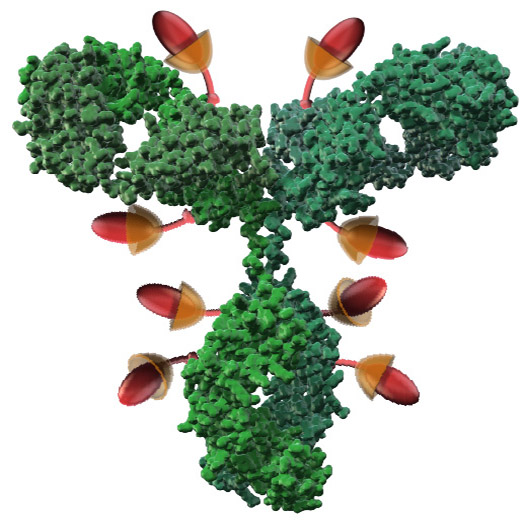
その他の遺伝子改変手法および酵素的結合手法
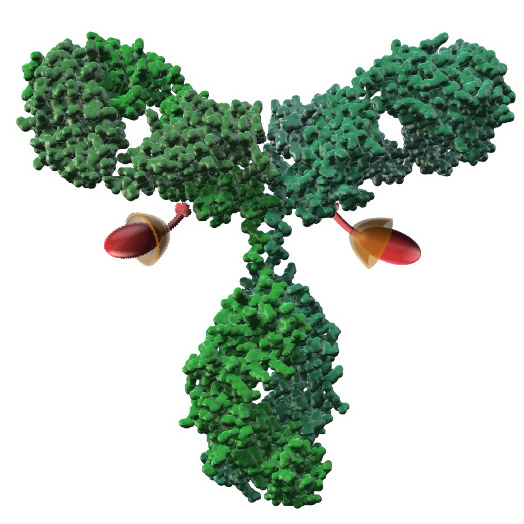
AJICAP®技術で創出したADCの生物活性
AJICAP®位置選択的結合技術 および/あるいは 安定リンカー技術により創出したADCは、高い有効性と安全性を発揮します。
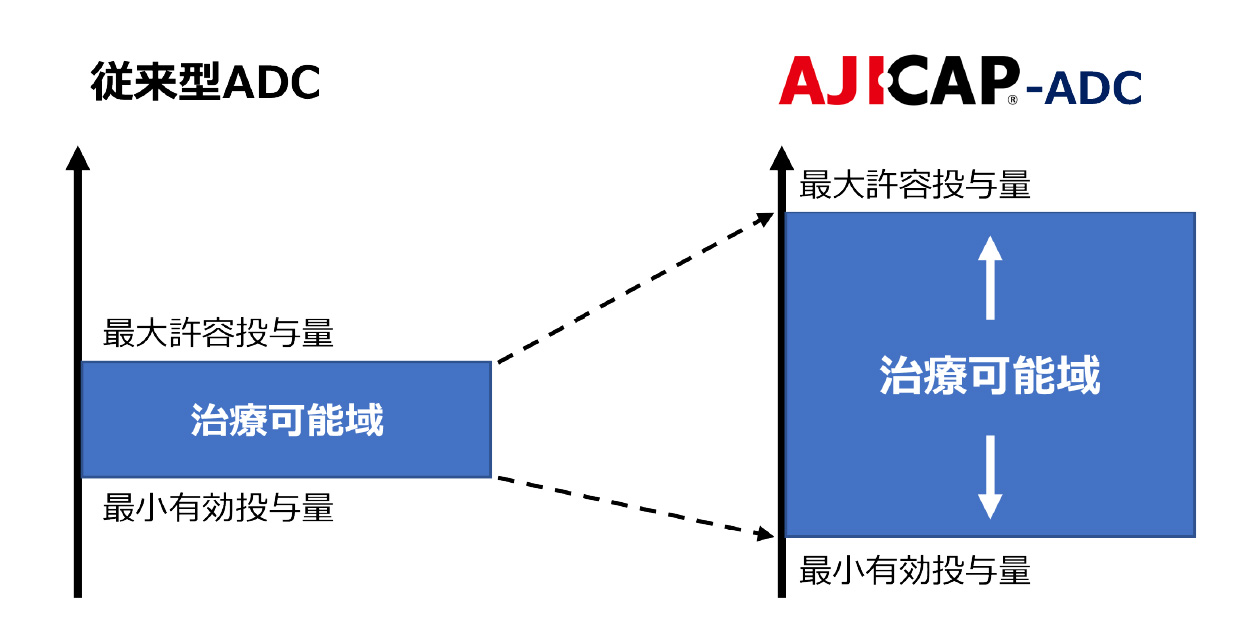
グローバルなサービス展開
味の素バイオ・ファーマ サービスの日本、アメリカ合衆国の設備にて、全世界を対象にサービス展開をしています。


サービスの一般的な流れ
サービスの流れは下記の通りです。お客様の抗体をお送りいただくことでサービスを提供させていただきます。
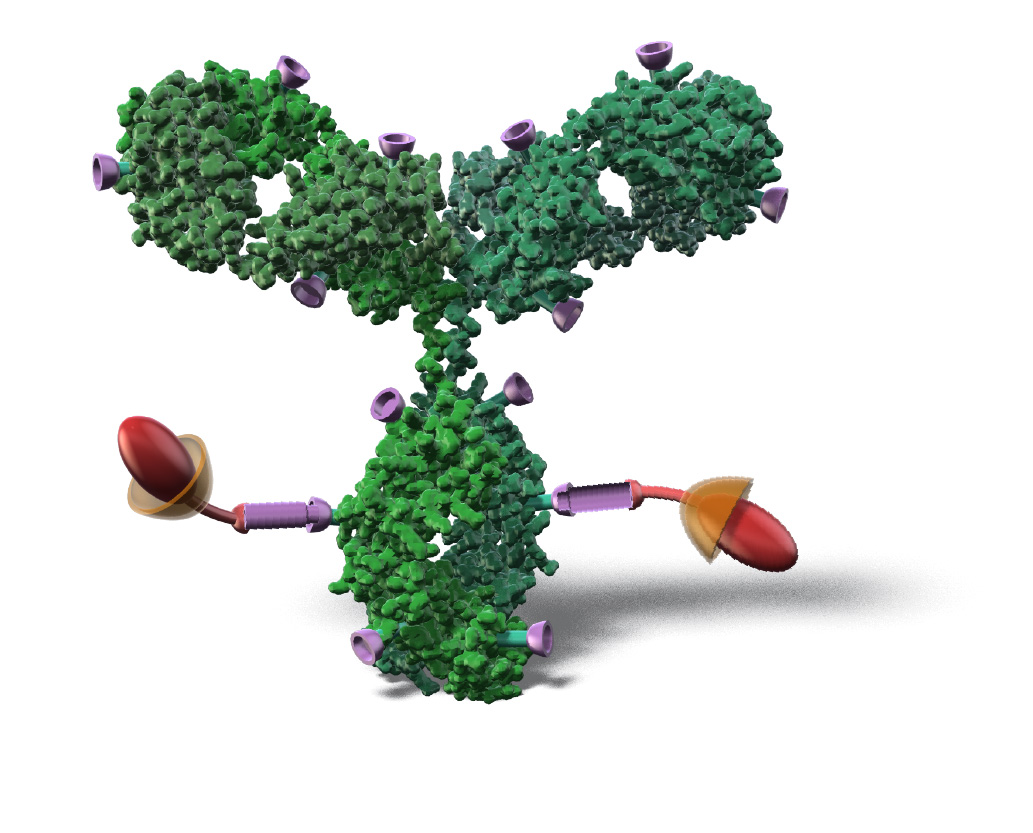
研究計画の協議
味の素バイオ・ファーマ サービスへの抗体(および薬剤)の送付
味の素バイオ・ファーマ サービスによるADCおよびその他結合体の調製
お客様によるADCおよびその他結合体の生物活性評価
技術ライセンス契約の締結
GxP製造の協議
関連資料
AJICAP®に関連する資料はこちらよりご覧いただけます。
論文
1. Exo-Cleavable Linkers: Enhanced Stability and Therapeutic Efficacy in Antibody–Drug Conjugates
J. Med. Chem. 2024, 67, 20, 18124–18138
The AJICAP® Exo-cleavable linker presents a potential solution to the inherent issues associated with traditional VC linkers (low hydrophilicity, low enzymatic stability) and improves the therapeutic efficacy and safety profile of ADCs.
Org. Process Res. Dev. 2023, 27, 6, 1136–1143
The paper described that the AJICAP® second-generation process is a robust and practical approach for the manufacture of ADCs.
Bioconjugate Chemistry, Articles ASAP
The report of AJICAP® second generation, affinity peptide mediated site-specific functionalization that enables the synthesis of next-generation antibody conjugates.
Mol. Pharmaceutics 2021, 18, 4058-4066.
The report of the compatibility and robustness of AJICAP® technology, which enabled the synthesis of a wide variety of ADCs. This is the first report of the therapeutic index estimation of site-specific ADCs produced by utilizing Fc affinity reagent conjugation.
5. AJICAP: Affinity Peptide Mediated Regiodivergent Functionalization of Native Antibodies
Angew. Chem., Int. Ed. 2019, 58, 5592–5597.
The report of AJICAP® first generation, a novel strategy with affinity peptide mediated site-specific functionalization that enables the synthesis of next-generation antibody conjugates.
Anal. Chem. 2019, 91, 12724−12732.
The report of further investigation focusing on comparison of several different analytical methods for drug–antibody ratio (DAR) determination of first-generation AJICAP®-ADC (Angew. Chem., Int. Ed.2019, 58, 5592–5597). The analytical strategy reported here can be applied to the DAR determination of site-specific ADCs.
Org. Process Res. Dev. 2019, 23, 2647−2654.
The report of the first gram-scale ADC synthesis using AJICAP® first generation technology (Angew. Chem., Int. Ed.2019, 58, 5592–5597) employing a scale-down manufacturing approach using tangential flow filtration. The results reported herein for the gram-scale optimization indicate that AJICAP® technology is amenable to relevant manufacturing production scales.
ACS Omega 2019, 4, 20564−20570.
The report of the preparation of site-specific ADCs based on first-generation AJICAP® technology for the utilization in good laboratory practice studies.
Journal of Chromatography B 2020, 1140, 121981.
The report of further investigation focusing on peptide mapping of the AJICAP®-ADC to confirm the exact conjugation position of the first generation AJICAP®-ADC. The analytical strategy described herein demonstrated a robust analytical methodology for revealing the conjugation site of ADCs.
Front. Biosci. (Landmark Ed) 2022, 27, 234.
The report of comparing site-specific maytansinoid-based ADCs synthesized by AJICAP® and T-DM1 in rat safety studies.
J. Am. Soc. Mass. Spectrom. 2020, 31, 1706−1712.
The report of site specific conjugated AJICAP®-ADC Native ion exchange mass spectrometry (SCX-UV-MS) .
Journal of Chromatography B 2021, 1177, 122753.
The report of the chromatographic separation of site-specific ADCs produced by AJICAP® technology using an analytical affinity chromatography HPLC column containing a recombinant FcγIIIa receptor-ligand immobilized on a non-porous polymer resin (NPR).
お問い合わせ
詳細につきましては下記リンク先よりメールにてお問い合わせください。
AJICAP®のストーリー
AJICAP®に関する記事はこちらをご覧ください。
